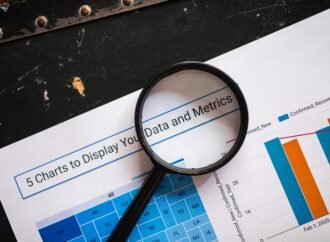Explore the critical role of data ethics in today’s digital landscape, focusing on privacy, bias elimination, transparency, and accountability to build trust and drive responsible innovation.
In today’s data-driven world, businesses are continuously leveraging vast amounts of data to drive innovation, make informed decisions, and improve operational efficiency. However, with the increasing reliance on data, comes the responsibility to handle it ethically. Ethical data practices are more critical than ever, as organizations must balance the power of data with the need to respect privacy, promote fairness, and build trust with their users.
Organizations must ensure that data is collected, analyzed, and used responsibly, without compromising individual rights or perpetuating harm. Adopting ethical data practices isn’t just about compliance with regulations—it’s about fostering a culture of trust and demonstrating accountability. By embedding ethical considerations into everyday data practices, businesses can not only stay ahead of the regulatory curve but also build stronger relationships with stakeholders.
Key Considerations for Ethical Data Practices
1. Privacy Protection
As data collection becomes more pervasive, privacy protection is paramount. Businesses must implement robust policies and technologies to safeguard sensitive information and comply with privacy regulations such as GDPR (General Data Protection Regulation) and CCPA (California Consumer Privacy Act). This includes:
- Data encryption and secure storage practices
- Explicit user consent before data collection
- Anonymization and pseudonymization techniques to protect user identities
- Regular audits to ensure compliance with evolving privacy laws
By prioritizing privacy, organizations can build user confidence and avoid potential legal consequences.
2. Eliminating Bias
Data-driven decisions have the potential to either reflect societal biases or reinforce harmful stereotypes. To prevent this, businesses must actively work to eliminate bias in both data collection and analysis. This can be achieved by:
- Using diverse datasets that are representative of different populations
- Implementing algorithmic transparency, so stakeholders understand how decisions are made
- Regularly auditing algorithms for unintended biases, ensuring fairness in outcomes
- Engaging with diverse teams during the data preparation and model development process
Eliminating bias ensures that data is used to benefit all, regardless of background, and fosters fair and equitable decision-making.
3. Transparency
Transparency is fundamental to building trust. Organizations should be clear about their data practices, including how data is collected, used, and shared. This transparency involves:
- Clear data privacy policies that users can easily access and understand
- Open communication regarding how personal data will be used, including sharing with third parties
- Engaging stakeholders and users in discussions about the ethical use of data and actively seeking their feedback
Transparency empowers users to make informed choices about their data and ensures that organizations operate with integrity.
4. Accountability
Accountability ensures that organizations take responsibility for their data practices and are held to high ethical standards. Businesses should establish clear accountability frameworks to:
- Monitor data usage continuously for compliance and ethical practices
- Respond promptly to concerns or violations, including data breaches or misuse
- Provide regular reports to stakeholders about how data is being used and the steps taken to uphold ethical standards
- Appoint data stewards or ethical review boards to ensure adherence to ethical guidelines
Accountability drives responsible data stewardship and ensures that ethical lapses are addressed swiftly and effectively.
Building a Culture of Trust and Responsibility
By integrating these ethical principles into everyday data practices, organizations can drive innovation while fostering a culture of trust, accountability, and responsibility. Ethical data practices not only help organizations comply with regulatory requirements but also enable businesses to establish stronger relationships with their customers and stakeholders.
As data continues to shape the future of business, responsible data practices are essential for maintaining a competitive edge and building long-term, sustainable success. Organizations that adopt these principles will be better positioned to lead with integrity and drive positive societal impact.





















